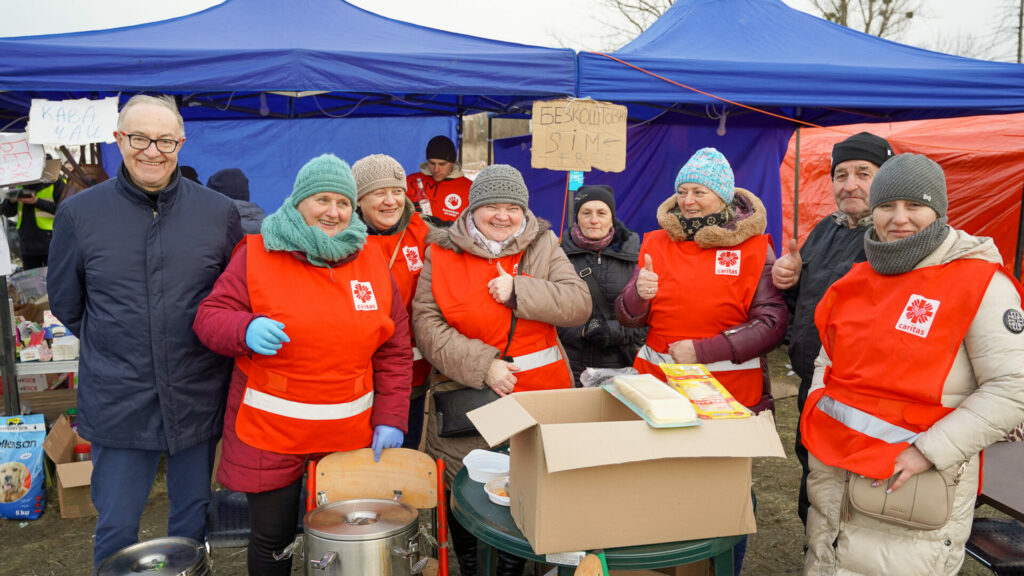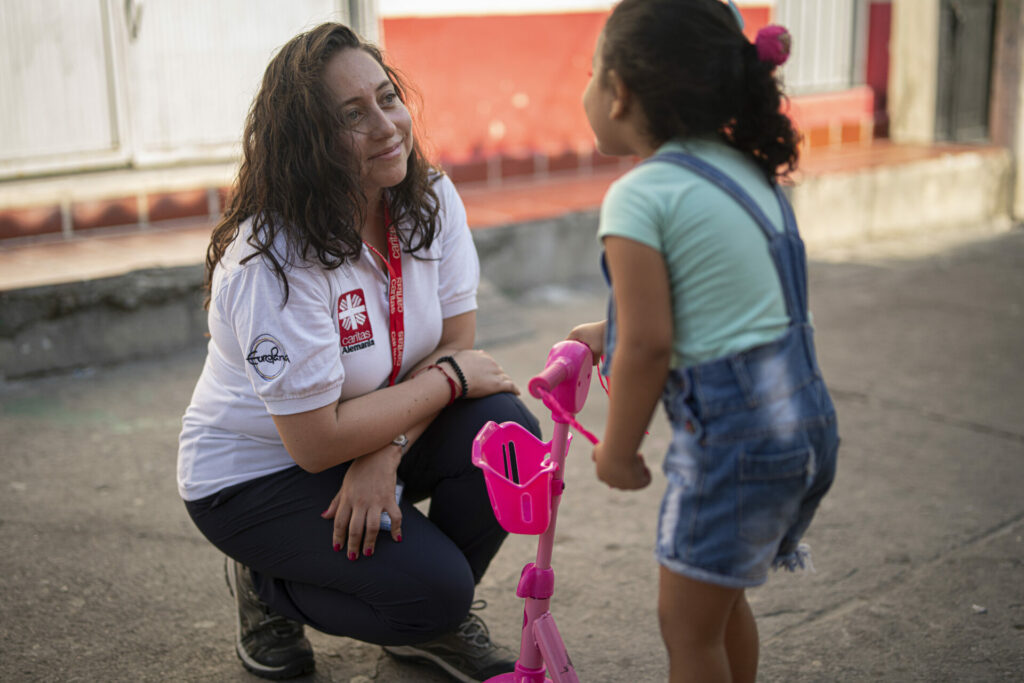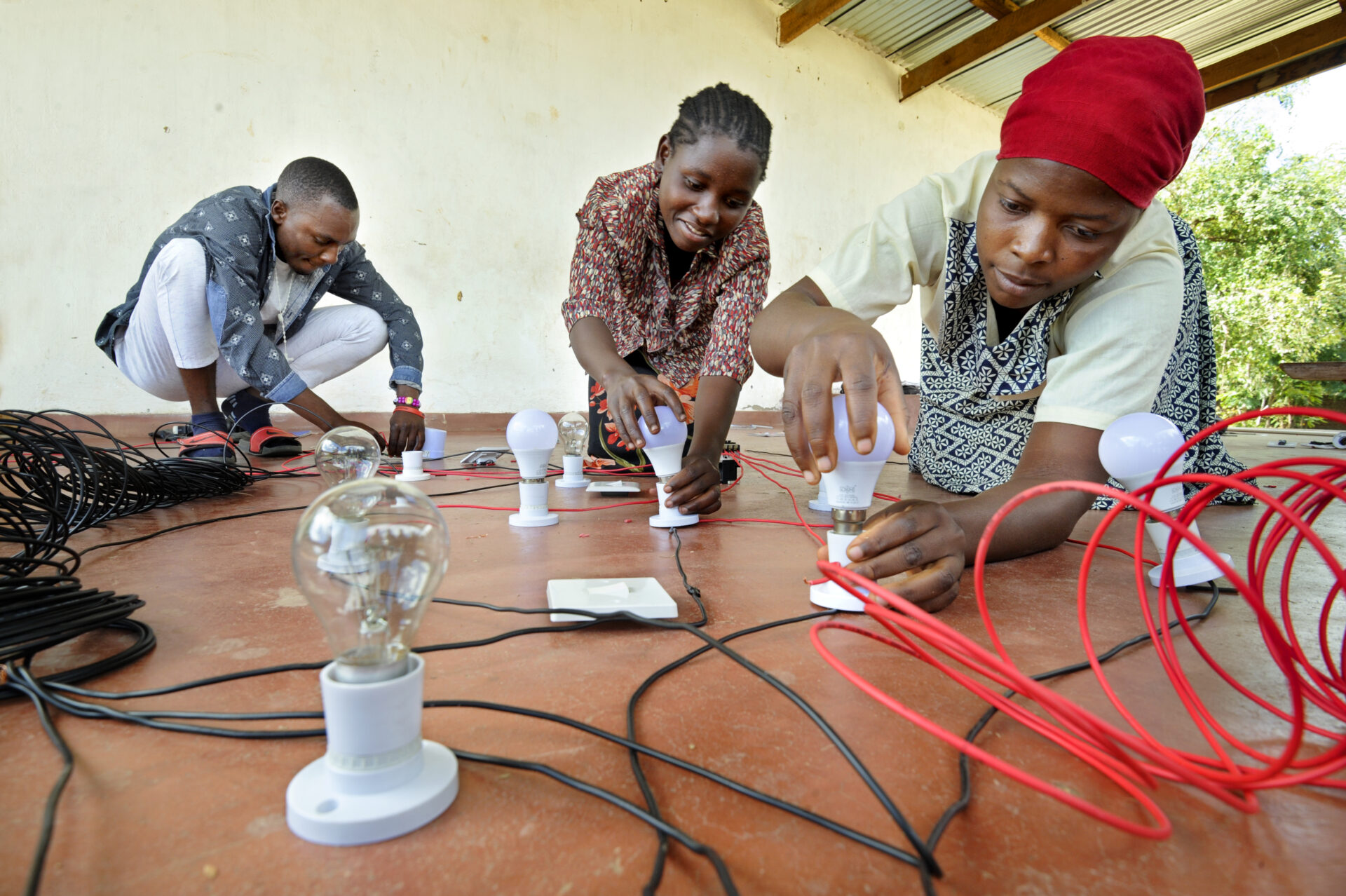Promoted by Caritas Europa
Caritas is a network of 49 national Caritas organisations in 46 countries. We respond to humanitarian crises around the globe, address the root causes of poverty and marginalisation, and promote integral human development. That means looking at all aspects of the development of the human person: economic, social, educational and spiritual.
In the last three decades, we have supported tens of millions of people to overcome the consequences of conflicts, economic crises, natural disasters, a global pandemic and, sadly, new wars in Europe and beyond. In fact, a significant number of European Caritas organisations support humanitarian and development projects overseas with a particular focus on Africa, Latin America and the Middle East.

Photo: Caritas Poland. Caritas Poland volunteers at a refugee reception centre in Medyka, on the border with Ukraine, March 2022
In our newest publication, "Unfulfilled promises. Addressing the gap between commitments and practice in locally led humanitarian action", produced in collaboration with the German think tank CHA (Centre for Humanitarian Action), we analyse the current situation and provide some critical recommendations. For example, tracking and openly sharing information about how much funding goes to local organisations is important, as is tracking the quality of this funding. In fact, some of the funding should be exclusively dedicated to strengthening the capabilities of local organisations to ensure their long-term effectiveness. It is also crucial to have local representatives actively participating in decision-making processes with the actual ability to influence priorities, such as directing resources to where they are needed the most.
The report is divided into three parts, the first presents the benefits of locally led humanitarian action and the challenges local groups face. In the second part, we measure the progress of international donors and aid agencies in enabling local groups to take the lead. Finally, we hear from local organisations in Lebanon and Colombia, including local Caritas organisations (chosen as case studies) about how they work with international donors and organisations.
The interviews with local staff in Lebanon show that the biggest challenge is accessing funding, particularly flexible, multi-year funding. Similarly, local groups in Colombia also face problems accessing the financing needed to ensure the sustainability of their programmes and report that they are not often represented at decision-making tables. According to the local organisations we interviewed (over 23 NGO representatives), they do not have a reliable income to cover all the costs.
In our view, there is no time to lose. Reform of the humanitarian aid system has been discussed for years, it is time to act now. All major donors (governments, UN agencies and international NGOs) should urgently change their way of working to support local organisations more directly and more efficiently.
As we celebrate our 30th anniversary, we also prepare to face a future in which the demand for humanitarian assistance is increasing in a setting where the funding available to meet these rising needs is decreasing. The only way forward is to transfer power to local people serving those in need in their beloved communities.

Photo: Philipp Spalek / Caritas international. Caritas worker Cindy Johanna Rodero playing with Alejandra, who migrated to Colombia from Venezuela with her mother in 2015
Where there is need, there is a Caritas
Who we are:
The Catholic Caritas confederation, with over 160 national members, is the 2nd largest humanitarian actor in the world. Caritas Europa is the European arm of the confederation. We work with people of all faiths to end poverty and promote the dignity of all. We have a heartfelt commitment to fighting the injustices which lead to poverty and the exclusion of people in the most marginalised and vulnerable situations.
Coordination
With a well-established grassroots presence, Caritas Europa coordinates the network's responses to emergencies in Europe and supports member organisations in preparedness and risk reduction. All our work is guided by a high level of safeguarding of children and adults in vulnerable situations.
Advocacy
Our advocacy work focuses on social policies, migration and asylum policies, humanitarian action and international cooperation.
Find out about our new report: www.caritas.eu

